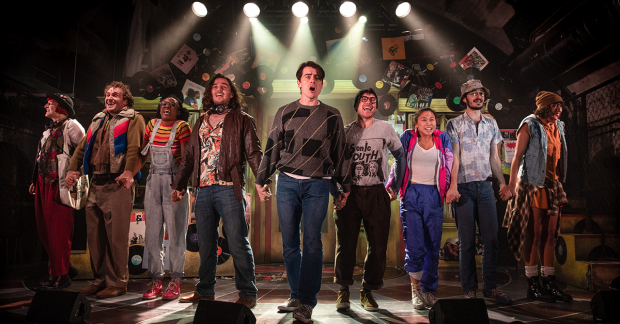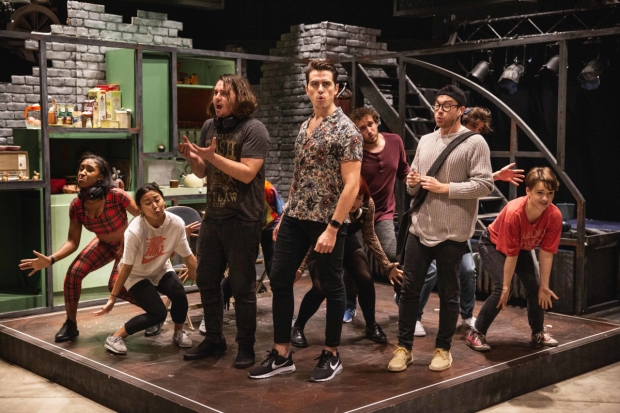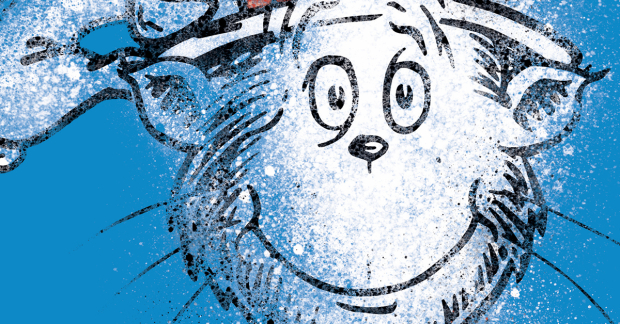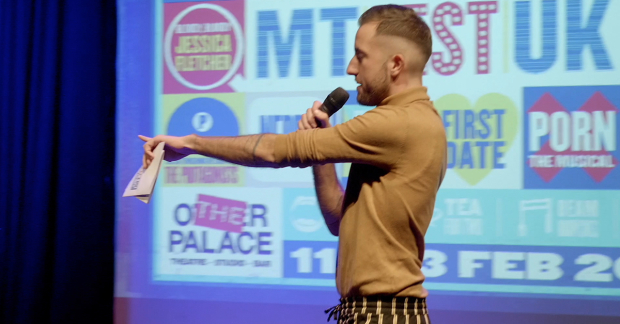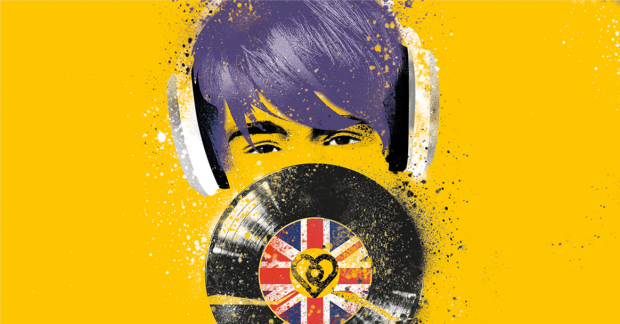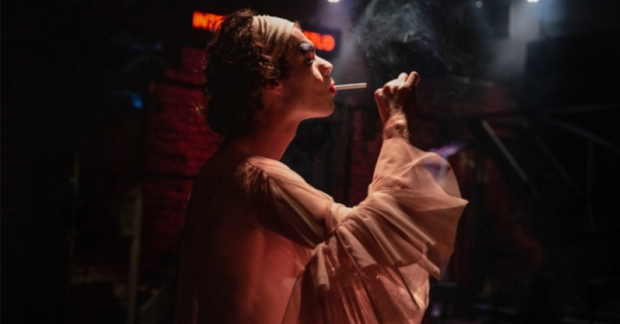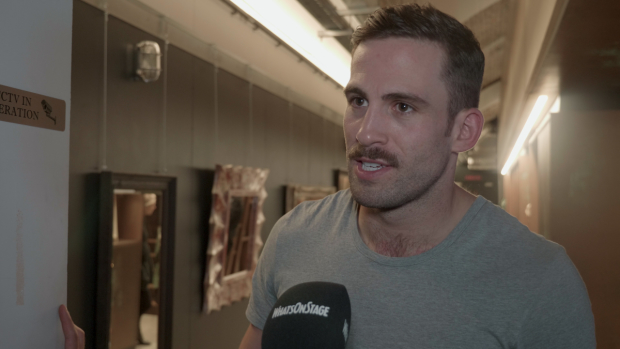Review: High Fidelity (Turbine Theatre)
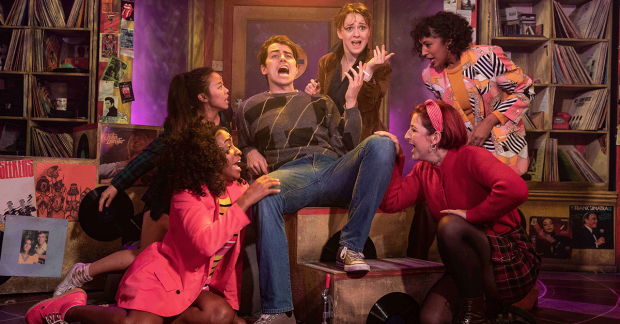
© Mark Senior
New theatres are springing up so quickly, I am having difficulty getting round to them all. So this was the first time I had visited the Turbine Theatre – an attractive space near Battersea Power Station – although this is its second show.
The theatre is great but its decision to produce this musical is really mystifying. High Fidelity, adapted from Nick Hornby's novel, is an irritating show that feels well past its sell by date. When Hornby's book about sad-sack Rob and his obsession with "the last real record store", vinyl rarities, mix-tapes and why his girlfriend Laura has left him, first came out in 1995 it was a breezy, comic sensation.
But it also spawned many, less funny and less insightful, imitators which led us to where we are today: well past peak interest in self-obsessed white men with overlarge record collections and over-sized egos. To resuscitate it at this point, in a musical version that doesn't come close to the classic pop that Rob is so fond of listing in his endless Top Fives, feels two decades too late.
The score – adapted by Vikki Stone to re-anglicise it after it was initially written for Broadway in 2006 by Tom Kitt, Amanda Green and David Lindsay-Abaire – is also a problem. Every song outstays its welcome by about four stanzas; not one stretches beyond instantly forgettable pop and some of the lyrics clunk on the ear. It is played at ear-splitting volume and accompanied by a lot of energetic choreography which doesn't disguise just how ordinary it is.
Tom Jackson Greaves directs with the desperation of a man who knows he has got a problem, pushing everything just a little too far and making every emphasis loud. In two instances this pays dividends. In going so far over the top that he is almost out of orbit, Robert Tripolino manages to make the fake guru Ian, Laura's new boyfriend, genuinely funny. And the scene where the action is constantly rewound to be performed in contrasting musical styles, has an inventiveness that the rest of the show lacks.
As Rob, Oliver Ormson struggles to get the audience on his side, unable to find enough charm to climb over the unattractive self-pity of the role. Robbie Durham and Carl Au try their best as his hapless sidekicks, but aren't given enough to do to emerge as real characters, though Joshua Dever has fun as a vision of Bruce Springsteen.
In general, the women come out on top, which is ironic given how little agency the show actually gives them. Bobbie Little is terrific as Liz, the wise friend who tells Rob what for; her number "She Goes" is the best of the night. Shanay Holmes has a heart-rending voice and real presence as Laura. But for all their efforts, the show is a miss rather than a hit. Which is a pop reference even older than Rob's vinyl collection.



